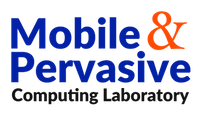Open Source Software and Download Page
The Mobile and Pervasive Computing lab is a proud supporter of and an active contributor to open source software. Software developed by this lab and available from this and other lab pages can be downloaded, used, modified and redistributed according to the terms of the GNU General Public License as published by the Free Software Foundation, version 3 or any later version.
The Atlas Sensor Integration Platform Project
Atlas is a sensor integration platform and a middleware. Parts of the middleware along with an emulator for sensors and devices are provided as open source. Included in this distribution are the Atlas Reactivity engine and Atlas tutorials and documentation. Also a sensor-based demo application is provided.
The STEPSTONE Project (Joint development with IBM)
Stepstone is an implmentation of a complete Service Oriented Device Architecture for working with devices. It is a transport mechanism with well-defined APIs, and a rich server platform web application based on Eclipse Equinox for dynamic access to device data. The project was originally developed by the Mobile and Pervasive Computing laboratory at the University of FLorida jointly with IBM. The project was sustained by several contributions by others while hosted at the Eclipse Foundation. The project is now hosted by and at the Open Health Tools.
The Device Description Language Specification (DDL)
DDL is an XML-encoded mark up language that defines sensors, actuators and more complex devices. It provides an "electronic datasheet" for devices that are readable to both human and machines. It bridge between the physical and the digital world in programmable pervasive spaces and enables automatic integration of devices. DDL is a key enabler and facilitator in any Service Oriented Device Architecture (SODA) implementation.
The Sensory Dataset Description Language (SDDL)
Sensory Dataset Description Language (SDDL) is an XML-encoded description language for characterizing sensory data generated and collected from real pervasive space deployments. SDDL v1.0 is driven by case studies and analysis of existing datasets owned by research collaborators. Its main goal is to facilitate and encourage non-ambigious and useful sharing of datasets among researchers.It is also intended to encourage simulation and dataset synthesis techniques either from scratch or based on existing datasets. SDDL is different from other standards such as SensorML in that it assumes a pervasive space with all its elements and salient features as source of the sensor data.
The PerSim Simulator of Human Activities in Pervasive Spaces
Persim (stands for Pervasive Simulation) is a simple yet powerful tool for simulating and generating datasets of human activities in pervasive spaces. It uses event driven simulation techniques and outputs data in SDDL format. A simulation project file contains all information accumulated over multiple sessions in which the Persim user specifies the physical space, the sensor instrumentation and the activities. Persim 1.0 is available for download now. A high realism and a much more scalable version of Persim based on Unity 3D, Smart Characters and context driven simulation technique is underway and will be made available publicly once completed and tested.
The Konark Mobile, Peer-to-Peer Service Discovery/Delivery Development Toolkit
The goal of the Konark project is to provide developers with a high level API to easily create applications used to discover and deliver services in an ad-hoc environment. At the base level, Konark is a protocol that uses this API to locate services, determine what is needed by the users, and deliver the services similar to web services. However, web services require an Internet connection. With Konark, no infrastructure Internet connection is needed. A device is normally mobile and may roam in and out of the wireless network as it wishes relying only on spontaneous ad-hoc connections.
The Spaceify Smart Space Middleware and Development Tools
Spaceify is a client-edge-server ecosystem that seamlessly integrates a physical space with the web. With Spaceify web apps can be given controlled remote access to resources such as big screens, sensors and lighting in the physical space. The Spaceify ecosystem was born as a collaborative effort of researchers from Helsinki Institute for Information Technology (HIIT), Aalto University, University of Helsinki and University of Florida. In late 2014 Spaceify was released as an open source project on github under the MIT license. The original Spaceify team continues active development of the ecosystem, but we also invite new developers to join us. A good way to get started is to publish Spaceify packages on the Spaceify package repository!
Cicero: Middleware for Developing Persuasive Mobile Applications
Cicero is a middleware solution to support developers design and implement persuasive mobile apps. Based on the Action-Behavior Model (ABM), Cicero provides developers with powerful class libraries and collaboration methodology to streamline the development of mobile persuasive apps without requiring a steep knowledge of behavior science theory or venturing into domain-specific knowledge and artifacts.
